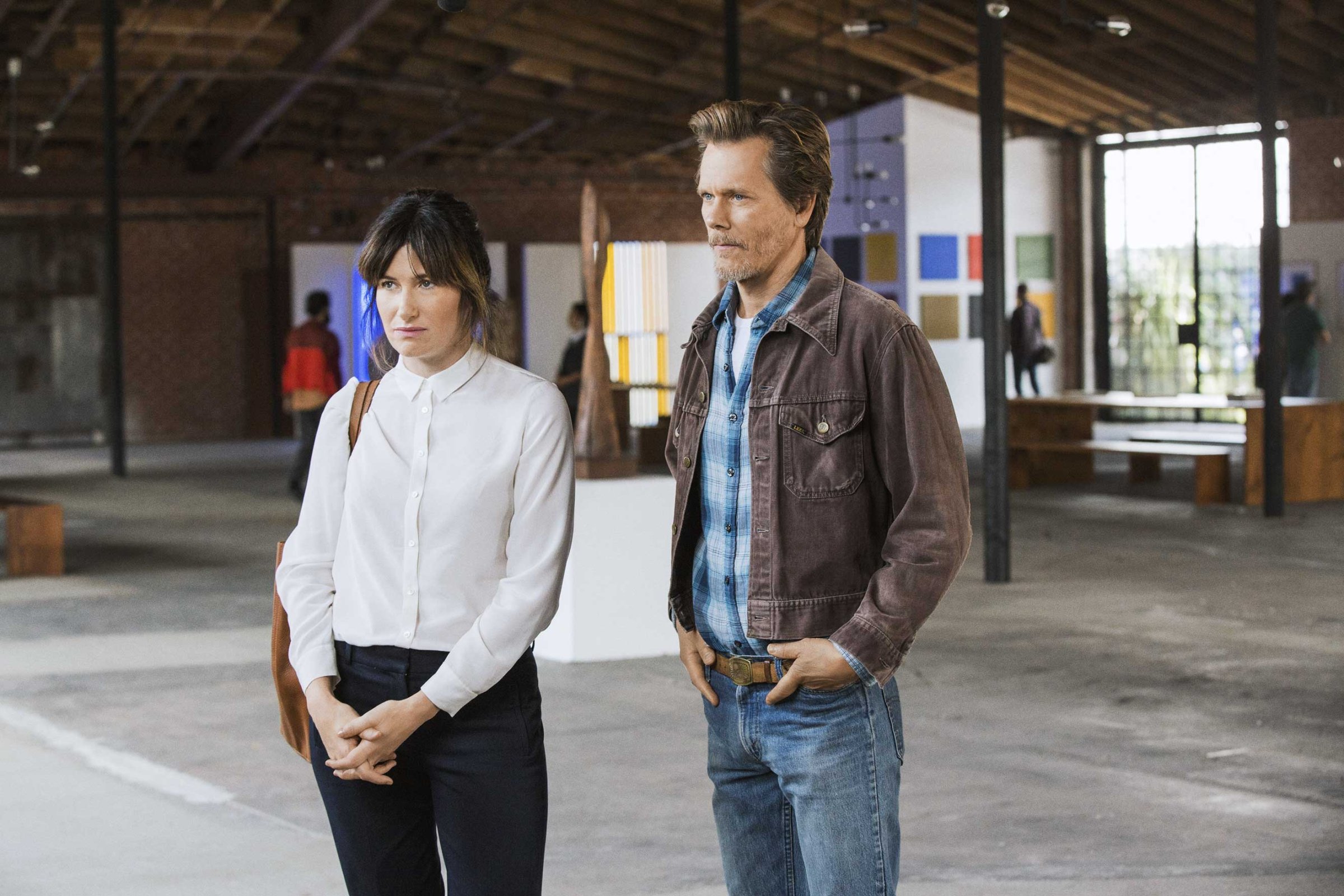
Even in a digital age, there’s nothing quite as potent as a letter. This is the first of many takeaways from Amazon’s I Love Dick, an eight-episode series that doesn’t so much flip the epistolary genre on its head as hold it at gunpoint and force it to dance. Chris Kraus (Kathryn Hahn), a filmmaker whose career is at a standstill, becomes fixated with sculptor Dick (Kevin Bacon). She writes him letters that begin as relatively harmless and move toward consuming obsession.
Maybe it should come as no surprise that all of this–admiration slipping into sex, the commingling of one’s work and one’s life–takes place against the backdrop of academia. Chris, whose film got booted from the festival where it was supposed to show, ends up stuck with her husband (Griffin Dunne) in an artists’ colony in Marfa, Texas. It’s a brilliant choice of setting, if a departure from author Chris Kraus’ semiautobiographical 1997 novel on which the show is based. This Marfa is a West Texas community of people trapped inside their own heads and overheated in every sense–especially when Chris begins posting her letters in the center of town for everyone to read.
For Jill Soloway, the show’s co-creator (with playwright Sarah Gubbins), this is familiar territory. She has explored both the desires of the body and the life of the mind on her show Transparent, also on Amazon. And yet I Love Dick is a surprise, not least because the novel seemed so unadaptable. One fix: Chris’ letters are read by Hahn in voice-over and depicted in bold type on screen. The book’s frank portrayal of desire comes through even more boldly. On the page, Dick’s character matters less than the fact that he exists as a man with the potential to validate Chris, to read her words and to see her. But in the show, Dick is more fleshed out. He’s a sculptor who works on the grand scale of a Richard Serra, minus the light touch. There’s a word for the arrogant, swaggering way he acts, but it’s a bit vulgar. When the two argue, the force of his beliefs is enough to convince Chris that it might be easier to let herself be swept away by his confidence.
Ultimately, Chris can’t think her way out of her desire. Hers is the crisis of being a person: we may want to live governed by our ideas, but what the body wants gets in the way. Conflicted by this, Chris has to work backward to construct a logic for her desire.
I’ve rarely seen a TV show so ably engage with issues of identity, sex and gender as this one. Transparent, similarly heady, has a tendency to get tripped up depicting its characters’ process of finding themselves through endless breakups and makeups. I Love Dick is less reliant on that kind of drama and manages to portray Chris’ inner life masterfully. She struggles to express herself, to attract, cajole and vent to Dick through her writing. Hahn, who plays Rabbi Raquel on Transparent, excels as a woman who simultaneously wants to be understood and respected and to sublimate herself entirely to someone else–even if it’s obvious he will never respect her. The tone of her letters grows more and more aggrieved as Dick ignores her. Their one-way romance swells into something increasingly troubling.
Literature has capitalized on the tensions in I Love Dick for decades, if not centuries. But TV–so often praised these days as being novelistic–has been far less able to capture the true inner turmoil of being a person. This story of wrongheaded lust gets it right.
More Must-Reads From TIME
- The 100 Most Influential People of 2024
- Coco Gauff Is Playing for Herself Now
- Scenes From Pro-Palestinian Encampments Across U.S. Universities
- 6 Compliments That Land Every Time
- If You're Dating Right Now , You're Brave: Column
- The AI That Could Heal a Divided Internet
- Fallout Is a Brilliant Model for the Future of Video Game Adaptations
- Want Weekly Recs on What to Watch, Read, and More? Sign Up for Worth Your Time
Contact us at letters@time.com